Team UGAL
|
Project role: Institutional responsible for SafeFood project, principal investigator for microbiology. Graduated as engineer in food technology (1985) and obtained her PhD title in Industrial Biotehnology (1999). She is currently professor of Food Microbiology, Rapid methods and Automation in Microbiology and Hygiene for Food Business Operators at the Faculty of Food Science and Engineering from the Dunarea de Jos University of Galati, Romania, and coordinates PhD thesis in the domain of Industrial Engineering, specialization Food Industry. Her current research is related to the detection of pathogens in food and food processing environments and to the destruction of microorganisms using alternative technologies. She acted as institutional responsible for several European projects as Biotracer (FP6), Promise (FP7), Foodseg (FP7), Food Zoonosis (COST Action 920) and BacFoodNet (COST FA Action 2012) and as director for the projects CFP/EFSA/DATEX/2010/01 and ViLmAR (bilateral project Romania-Austria). At present, she is the institutional responsible for the SafeFood (ERA IB2) and SafeConsumE (Horizon 2020) projects. Follow her publications on Loop: https://loop.frontiersin.org/people/269090/overview. |
|
Project role: principal investigator responsible for high pressure processing. Graduated in 1993 from the Faculty of Food Technology, in 1999 she obtained a MSc degree and in 2005 acquired a PhD degree in Industrial Engineering at the "Dunarea de Jos" University of Galati, Romania (UGAL). She is currently a professor at UGAL, giving lectures in Food Quality and Safety & Dairy Technology, for bachelor and master students. Her main research interests are connected with high pressure processing, dairy science, gas-chromatography and edible coatings and films. |
|
Project role: Deputy institutional responsible for SafeFood project, principal investigator for genetics. Graduated as biologist (2001) and obtained her PhD title in Industrial Engineering (2011). She is currently lecturer of Enzymatic and immunological methods, Genetically modified food and Genetic engineering at the Faculty of Food Science and Engineering from the Dunarea de Jos University of Galati, Romania. Her PhD thesis was, in part, the result of two FEBS fellowships and one mobility project to Instituto de Agroquimica Y Tecnologia de Alimentos (IATA)”, Laboratory of Enzyme Structure and Function, Valencia, Spain. She was the principal investigator of the Postdoctoral Fellowship with the title Induction of cellulolytic activity in yeast strains of genus Saccharomyces sp. by genomic studies, earned by competition POSTDRU/89/1.5/S/52432 contract and was team member in three research projects. Her current research is related to pathogen’s inactivation by CRISPR gene editing. |
|
Project role: Principal investigator responsible for microscopy (CLSM). Graduated in 1991 the Faculty of Biology from the University of Bucharest. Since 2003, she is member of the academic staff in the Department of Food Science, Food Engineering and Applied Biotechnology from the Faculty of Food Science and Engineering, where she teaches Cellular biology, Genetic engineering, Biotechnology of cell and tissues cultures, Ecology and environmental monitoring and phytosanitary control. She is associate professor since 2009. Her current research is related to the biologic active compounds and probiotics. She has 52 citations, two books as author or coauthor, 36 papers/studies published in ISI or IDB journals, over 20 studies published full or summary in the proceedings of international scientific events, 14 research, development and innovation projects of which 2 as director. |
|
Project role: Postdoctoral student. Graduated as food engineer (2012) and obtained the PhD title in Industrial Engineering domain (2017). In the last years, her research was related to the incidence of Staphylococcus aureus in foods confiscated from travelers’ luggage from road and air traffic borders and characterization of isolates, especially from the point of view of antibiotic resistance and biofilm formation. Her research experience is quite vast as she worked in the FP7 PROMISE (Protection of consumers by microbial risk mitigation through combating segregation of expertise), FOODSEG (Safe Food for Europe– Coordination of research activities and dissemination of research results of EC funded research on food safety), and COST FA 1202 (A European Network for Mitigating Bacterial Colonisation and Persistence On Foods and Food Processing Environments) projects. She integrates well in international teams as she had the opportunity to work in different laboratories from prestigious European institutions based either on Short Term Scientific Missions associated to research projects or grants obtained via competitions such as FEMS and EU-FORA fellowships. Currently, she is involved in the risk assessment of antimicrobial resistance along the food chain through culture-indepedent methodologies and being part of the team working for ERA-IB project SafeFood (Development of a novel industrial process for safe, sustainable and higher quality foods, using biotechnology and cybernetic approach). |
|
Project role: PhD student. Graduated as food technologist in 2014 at the Faculty of Food Science and Engineering from Dunarea de Jos University of Galati, Romania and obtained her master title with the same institution in 2016. She is currently a Ph.D. student, researching in the Industrial Engineering domain. Her research is focused on assessing incidence of human pathogens in food products and food related environments and their death/survival when using alternative technologies in food processing. She is also working as research assistant in two European projects, namely SafeFood (ERA IB2) and SafeConsumE (Horizon 2020). |
Work Progress
2017
December
First report on the project work was sent to UEFISCDI.
November
The working protocols for two mutagenic methods were established. The first method uses chromosomal mutagenesis for “gene deletion”, while the second one uses CRISPRi technology for “gene knockout”.
Our file for obtaining the authorisation for working with genetically modified organisms was officially registered (no. 3/02.11.2017) and presented to the Commission for Biosecurity for examination.
October
Suplimentary information was added to the file created for obtaining the authorisation for working with genetically modified organisms.
September
Participation to the Annual Meeting of the SafeFood Consortium, 4th to 5th of September 2017, Barcelona, Spain and visit of the Universidad Autonoma de Barcelona (project partner).
Leontina Grigore-Gurgu (PI) and Florentina Ionela Bucur (PhD student) started their trainings at the Institute for Microbiology and Biotechnology from the University of Ulm, Germany, to learn mutagenesis techniques.
August
Suplimentary information was added to the file created for obtaining the authorisation for working with genetically modified organisms.
July
A file describing the flows and procedures applied in our premises was sent to the National Agency for Environmental Protection to obtain an authorisation for working in containement conditions with genetically modified microorganisms (risk class 2).
June
Participation to the 5th edition of the Scientific Conference organized by the Doctoral Schools of Dunarea de Jos University of Galati, 8th - 9th of June 2017, Galati, Romania with the oral presentation Survival mechanisms of the foodborne pathogen Listeria monocytogenes (authors: Florentina Bucur, Leontina Grigore-Gurgu and Anca Ioana Nicolau)
May
Extraction of DNA from the strain L. monocytogenes LmRO15 was performed and extracts were sent to the University of Helsinki for whole genome sequencing.
April
Contract with UEFISCDI was signed.
Ten strains of L. monocytogenes from the UGAL culture collection were tested for barotolerance. The ones that better tolerated high pressures were sent to Nofima for being tested in competition with listeria from other culture collections. Based on these tests, L. monocytogenes LmRO15 was declared barotolerant. Members of the SafeFood Consortium established to continue their investigations for finding the mechanism that allows L. monocytogenes to survive high pressures on LmRO15 strain.
January – March
As partners of the SafeFood consortium started to work, we started too in order to keep pace with them.
The SafeFood project was presented to the Safety FOOD-3 International Conference - THE CHALLENGES FOR QUALITY AND SAFETY ALONG THE FOOD CHAIN, organized by the NEW BULGARIAN UNIVERSITY, in Sofia, Bulgaria. The project was introduced in connection to the oral presentation entitled Preservation of foods by combined technologies using high pressure processing: challenges and opportunities (author: Daniela Borda).
Consortium
SafeFood project is coordinated by Nadav Bar and Sigurd Skogestad from the Norwegian University of Science and Technology (NTNU). The Process System Engineering (PSE) group has a sound knowledge in modeling and analysis of processes for industrial applications, resulting in increasing production, solving process bottlenecks, optimizing processes, increasing safety of products and processes. The group’s experience in industrial processes and their training as systems engineers makes the group a strong candidate for leading the project successfully.
NOFIMA, Norway, the Europe’s largest industry-oriented institute, brings to the project its competences in food microbiology, food quality, food durability studies, fish and meat raw material quality, and processing and storage. Nofima also has facilities for sensory analysis, including texture, visual appearance, and a trained sensory panel. Trond Løvdal, Tone Mari Rode and Dagbjørn Skipnes are participating in the SafeFood project.
University of Helsinki is pioneering the next generation sequencing (NGS) technologies in Finland. The group participating in SafeFood project is leaded by Petri Auvinen.
University of Ulm, Germany, has long experience with regulation of biofilm formation and virulence of Listeria monocytogenes by the agr peptide sensing system. A number of molecular tools for Listeria monocytogenes were successfully designed by Christian Riedel and have since then been utilized and further developed extensively by others. Christian Riedel coordinates the group participating in SafeFood project.
Dunarea de Jos University of Galati (UGAL), Romania, has specialists in traditional and molecular microbiological methods, genetic engineering techniques and thermal and alternative food preservation techniques. Groups led by Anca Nicolau and Daniela Borda are participating in SafeFood project.
Universidad Autonoma de Barcelona, Spain, is represented in the SafeFood project by Manuela Hernández and Marta Capelas’s groups, which have experience in the application of HHP for food preservation and transformation and in the use of flow cytometry to evaluate a range of physiological parameters from food-borne pathogenic bacteria after exposure to food-relevant stresses. Her group participated in numerous national and European research projects.
University of Porto, Portugal: The group participating in SafeFood consortium, which is led by Luisa Peixe, has competences in molecular characterization (e.g. PCR) and cellular biology of bacteria related to foodborne diseases, especially Listeria monocytogenes.
APA Processing – HIPERBARIC, Barcelona, Spain, has the unique and exclusive mission of supplying high pressure technology to all types of companies. Is one of the industrial partners of the SafeFood project. Represented by Helena Nunes.
NOEL ALIMENTARIA, Spain, is one of the leading companies in the Spanish meat sector and one of the industrial partners of the SafeFood project.
Page 3 of 4
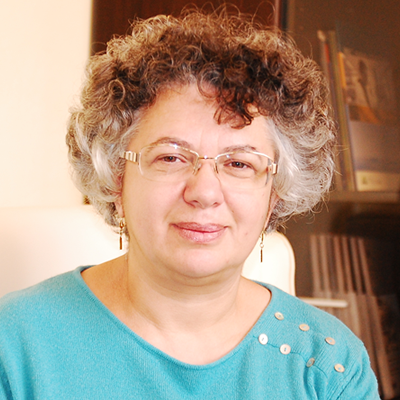 Anca Ioana NICOLAU
Anca Ioana NICOLAU Daniela BORDA
Daniela BORDA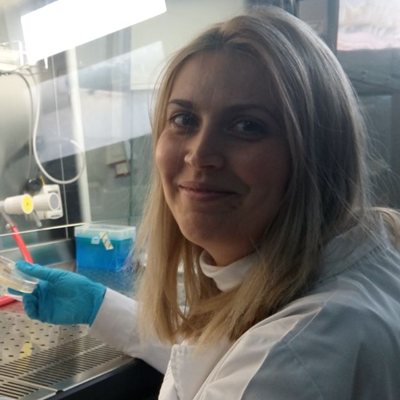 Leontina GRIGORE-GURGU
Leontina GRIGORE-GURGU 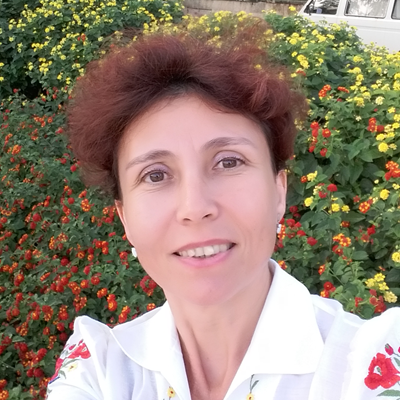 Vasilica (Viorica) BARBU
Vasilica (Viorica) BARBU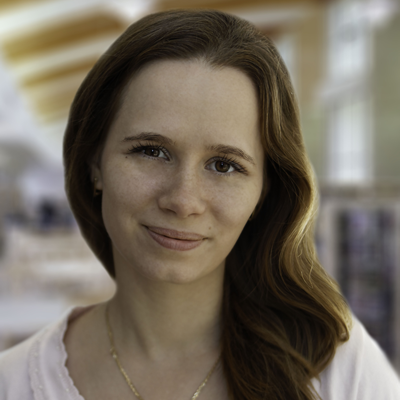 Elena-Alexandra ONICIUC
Elena-Alexandra ONICIUC 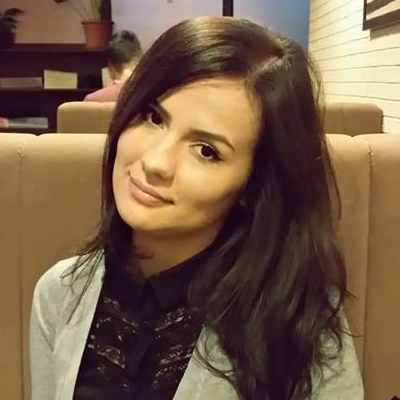 Florentina Ionela Bucur
Florentina Ionela Bucur